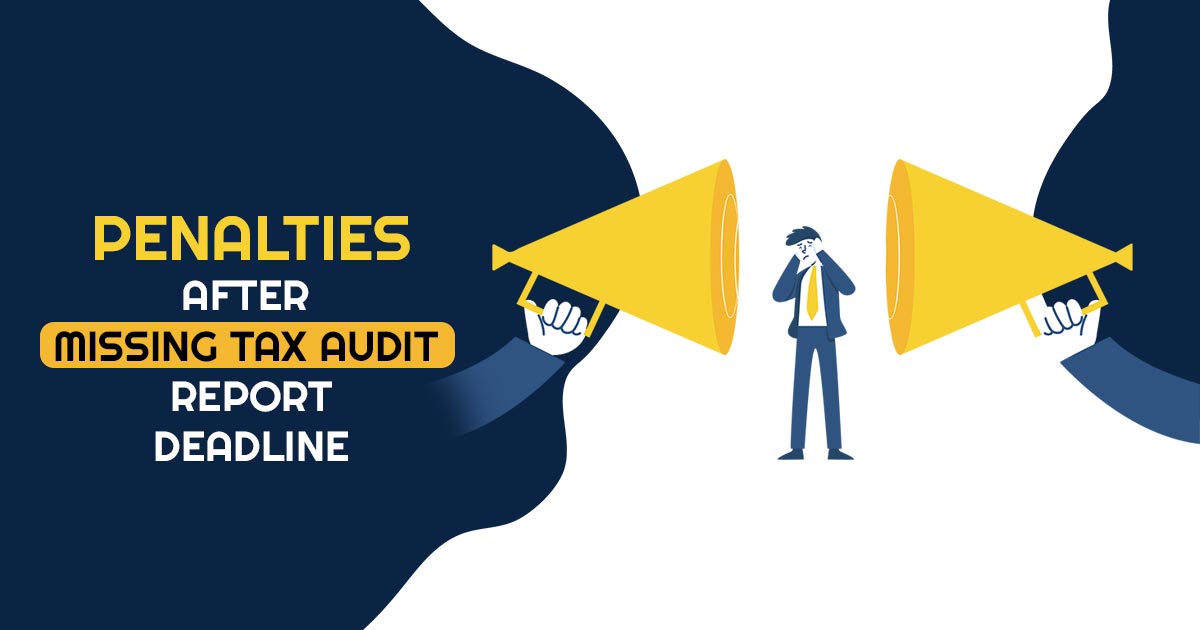What is Tax Audit?
The term “audit” essentially refers to inspection or assessment and under various laws and regulations, different audits are required to be performed, such as company audits, cost audits, etc. Under Section 44AB of the Income-Tax Act, a taxpayer is required to undergo an audit of the business accounts on fulfilling certain conditions.
Section 44AB aims to ascertain the compliance of various provisions and the fulfillment of other requirements of the Income-tax Law. As per the provisions of 44AB, a practicing Chartered Accountant is eligible to conduct tax audit.
Who is required to get accounts audited u/s 44AB?
| As per section 44AB, the following persons are compulsorily required to get their accounts audited, Category of Person | Applicability Criteria |
| Business (Excluding person who has opted for presumptive taxation scheme under Section 44AD) | Total sales, turnover, or gross receipts in business for the year exceed Rs. 1 crore. (Rs. 2 Cr in case of section 44AD(1). |
| Business | The threshold limit, for a person carrying on business, is increased to Rs. 10 Crores if, Receipts in cash does not exceed 5% of all receipts. Payment in cash does not exceed 5% of all payment |
| Profession | Gross receipts in profession for the year exceed Rs. 50 lakhs. |
| Business Covered U/s 44AD | If such a person claims that the profits and gains from the business are lower than the profits and gains computed in accordance with the provision of Section U/s 44AD, 44ADA and 44AE then TAX Audit is applicable as per Section 44AB. |
| Profession Covered U/s 44ADA | |
| Transport Business Covered U/s 44AE |
Due Date and Penalty for Delay in Furnishing Tax Audit Report
A person covered by section 44AB should get his accounts audited and should obtain the audit report on or before 30th September of the relevant assessment year.
According to section 271B, if any person who is required to comply with section 44AB fails to get his accounts audited as required under section 44AB or furnish such report as required under section 44AB, the Assessing Officer may impose a penalty. The penalty shall be lower of the following amounts,
- 0.5% of the total sales, turnover in business or gross receipts in profession
- Rs. 1,50,000.
However, according to section 271B, no penalty shall be imposed if reasonable cause for such failure is proved.
Tax Audit Report Filing Process
The following is the procedure for filing tax audit report:
- The Chartered Accountant assigned for conducting tax audit of an individual or an organisation has to present the tax audit report online, using his/her official login credentials.
- The taxpayer also has to mention the relevant information about their Chartered Accountant in their login platform.
- Once the tax audit report is uploaded by the auditor, it has to be either accepted or rejected by the taxpayer on their login portal. If the taxpayer rejects the tax audit report, the entire process has to be repeated until the tax audit report is accepted by him/her.
- Tax audit report has to be filed on or before the pre-determined due date of filing income return, i.e., 30th November of the subsequent assessment year for taxpayers who have engaged in an international transaction and 30th September of the subsequent assessment year for other taxpayers.
Forms Required for Tax Audit
Tax Audit reports can be presented in two different ways by tax auditors, differing on the basis of the laws under which the accounts have been audited.
- Form 3CB and Form 3CD: For tax audit reports presented under Section 44AB of the Income Tax Act, 1961, Form 3CB and the prescribed details have to be reported in the Form 3CD.
- Form 3CA and Form 3CD: When a taxpayer prefers to get the accounts audited under any law other than Section 44AB, then the relevant form is Form 3CA, while the prescribed details have to be reported in the Form 3CD.
This Article is only a knowledge-sharing initiative and is based on the Relevant Provisions as applicable and as per the information existing at the time of the preparation. In no event RMPS & Co. or the Author or any other persons be liable for any direct and indirect result from this Article or any inadvertent omission of the provisions, update etc. if any.
Published on: September 27, 2023












